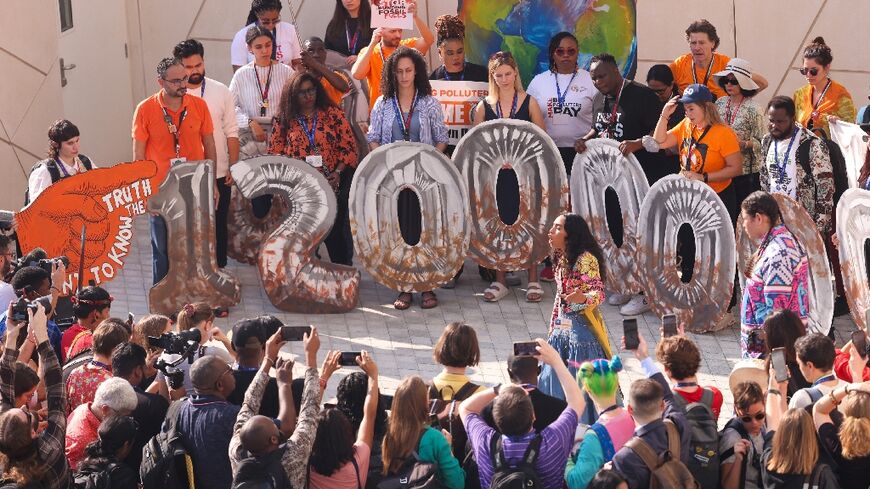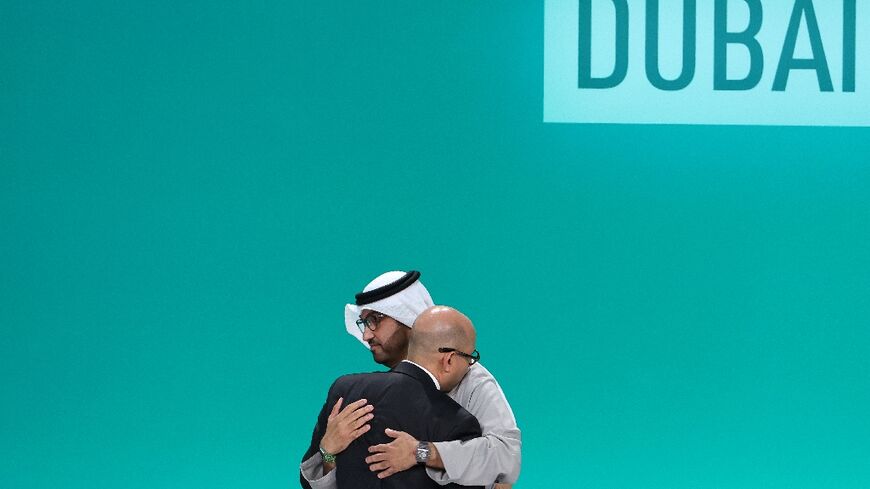Saudis, Iraq stand firm as COP28 targets fossil fuels

Oil producers Saudi Arabia and Iraq stood their ground at UN climate talks on Sunday as they faced pressure to drop their opposition to a phase-out of fossil fuels at COP28 in Dubai.
With less than 48 hours left before the conference's official end, COP28 president Sultan Al Jaber invited ministers to give their views in a "majlis" -- a traditional Gulf Arab meeting held in a circle.
While Jaber called the gathering in an effort to produce a compromise, warning that "failure is not an option", countries held firm in their positions.
The European Union and members of Pacific islands states threatened by rising seas reiterated their calls for a phase-out of fossil fuels.
Saudi Arabia, the world's top oil exporter, has voiced its opposition to any phase-out or phase-down of fossil fuels and OPEC has urged its members to block any such language at COP28.
A Saudi official told the COP28 majlis that Riyadh's "perspectives and concerns" must be taken into account.
"The politically backed points about targeting specific energy sectors, it's something that we have heard at many different discussions and many different settings, but in each and every time, science, common sense, principles prevailed," he added.
An Iraqi representative was more direct, saying his country was against any "mention (of) global sectorial targets" including a phase-out or phase-down of fossil fuels.
Veteran climate campaigners and negotiators say the world has never been so close to a deal on winding down oil, gas and coal in nearly 30 years of COP summits.
Jaber, the head of the national oil company of the United Arab Emirates, has said himself that action on fossil fuels must be part of any deal at COP28.
After the majlis, EU climate commissioner Wopke Hoekstra said there was "a majority, some would say a supermajority, of countries here present who want to push forward for more ambition".
Hoekstra then headed to the Saudi pavilion as negotiations continued.
Speaking about the Saudi and Iraqi statements, German climate negotiator Jennifer Morgan said: "They obviously felt they needed to engage, whether it was a bit of panic, whether it was a bit of realisation of how far the discussions are."
- Saudi 'blockers' -
Alden Meyer, senior associate at E3G climate think tank, said Saudi Arabia has been "blockers" at climate talks for around three decades.
Meyer said it is not "compromise language" in a deal that will sway the Saudis.
"It's going to be immense geopolitical pressure from the US, China, Europe and others saying, 'Don't be the last ones that blow up the success of this Conference of the Parties meeting,'" he said.
Chinese climate envoy Xie Zhenhua said Saturday his team was working with other countries to find a deal on fossil fuels that is "acceptable to all parties".
Observers said Saudi Arabia was slowing down negotiations on other issues at COP28 in efforts to rally developing countries to join their opposition to a phase-out.
Scientists say the world must end its use of fossil fuels, which are responsible for the bulk of greenhouse gas emissions, if it is to limit warming to 1.5 degrees Celsius and avoid the most catastrophic climate scenarios.
A third draft of a deal, released on Friday, offers various ways to phase out fossil fuels but also includes the option to avoid the issue entirely. A new text is expected on Monday.
- Western 'hypocrisy' -
Developing countries say they cannot be expected to move at the same pace as developed nations that owe their wealth to the burning of oil, gas and coal.
At the majlis, China's representative said climate action was a "marathon, not a sprint".
He said developed nations are ahead of the pack and should help developing countries by providing the funds needed for their energy transitions.
Bolivia denounced the "hypocrisy" of countries that press the developing world on climate change while expanding their own production of fossil fuels. He named the United States, Canada, Norway and Australia.
Standing in the middle of the circle, Jaber closed the meeting by urging countries to make the event be known as a "change-makers majlis".
"We are now in the endgame," he said. "To deliver the very balanced, ambitious outcome we need, we need you to act as the change-makers."
He added: "I hope that you won't let me down."







